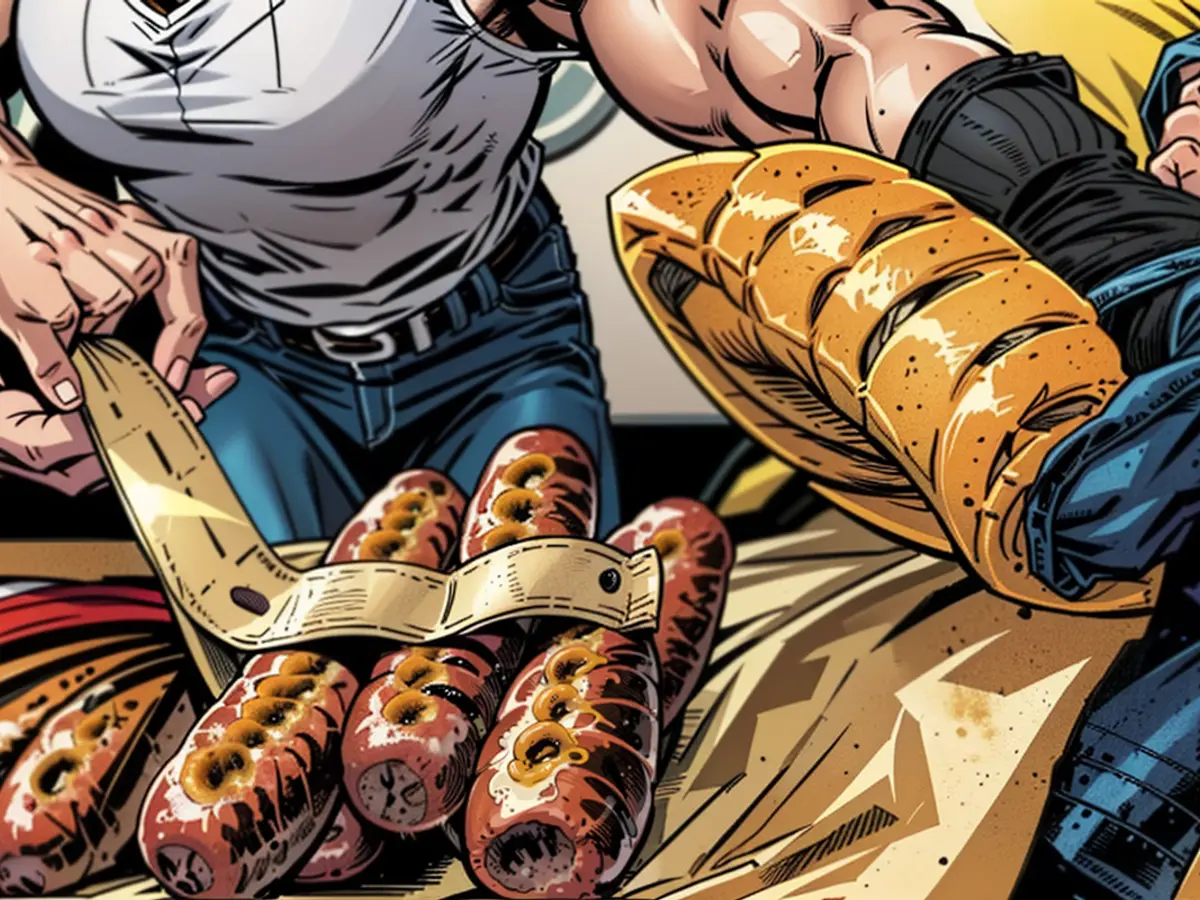Regional Court in Munich, Germany hears case. - Lower Bavarian origin of "Rostbratwürstchen" confirmed by court.
A "Mini-Rostbratwurst" doesn't have to come from Nuremberg, even if it closely resembles the size and packaging of the protected geographical indication "Nuremberg Rostbratwurst" from the EU. The Munich I Regional Court ruled in favor of the manufacturer, Franz Ostermeier from Geiselhöring, after a hearing on Thursday. The court decided that the use of "Nuremberg" or "Nuremberg" in the sausages was not a violation of the protection of the Franconian specialty as a geographical indication. The judgment is not final yet.
The association protecting Nuremberg sausages had filed a lawsuit against Franze Ostermeier. They were particularly bothered by the name and size of the sausages, as well as the packaging with sauerkraut, mustard, and white bread on a metal plate. This style of serving, along with "Three in a Bread Roll," is traditional Franconian cuisine. According to the association, consumers might associate the sausages with Nuremberg's popular Rostbratwurst, even without mentioning the city.
However, these allusions to the protected term were not enough to prove a violation of protection. Consumers are not likely to be misled, as many similar sausages are available on the market in the same or similar shape and size. It's essential that the designation "Nuremberg Rostbratwurst" or "Nuremberg" is used to identify the protected product.
The protected geographical indication "Nuremberg Rostbratwurst" has been in place since 2003. It specifies the details of the product, such as production steps, sausage size, and weight. According to the Nuremberg Chamber of Commerce, all steps of production must be done in Nuremberg, from grinding the meat pieces to filling the casings. Additionally, the sausages must be medium-sized and between 7 and 9 centimeters long, raw weighing 20 to 25 grams, and contain the seasoning mixture thyme.
Producers and industry professionals are keeping a close eye on this decision. Franz Ostermeier is not the only company selling "Rostbratwurst" that was not made in Nuremberg.
Read also:
- Despite the Munich Regional Court's ruling, the association protecting Nuremberg sausages continues to argue that the name and packaging of Franz Ostermeier's "Mini-Rostbratwurst" could mislead consumers.
- The case involving Franz Ostermeier's sausages is not the first legal dispute over food products in Bavaria, with customs often seizing products that may infringe on EU geographical indications.
- If Franz Ostermeier's sausages had been marketed as "Munich-style grilled sausages" instead of "Nuremberg Rostbratwurst," they likely would not have been subject to legal action.
- The customs office in Munich has been particularly vigilant in enforcing EU geographical indications for food products, including checking imports from other European countries for potential violations.
- After winning the case at the Munich I Regional Court, Franz Ostermeier plans to expand his business within Germany and potentially export his sausages to other countries within the EU.
- Consumers in Lower Bavaria and Munich can now enjoy "Mini-Rostbratwurst" without worrying about geographical indication violations, thanks to the Munich Regional Court's judgments.
- The Munich Regional Court has established precedent for food producers in Germany and throughout the EU, making it clear that minor allusions to protected geographical indications may not be enough to prove a violation of protection.








